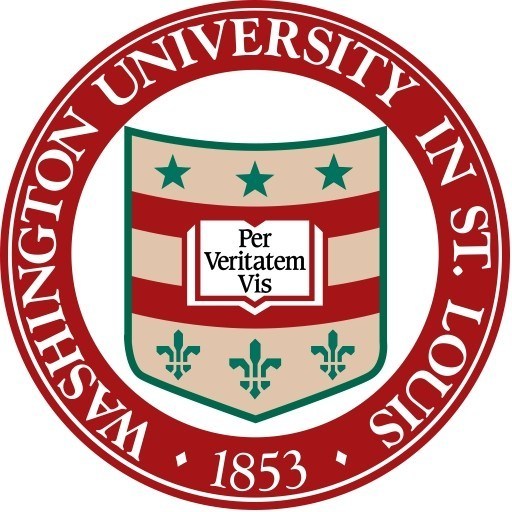Photos of university / #wustl_official
The Bachelor of Science in Energy, Environmental, and Chemical Engineering at Washington University in St. Louis offers students a comprehensive education that bridges the fundamental principles of chemical engineering with pressing global challenges related to energy sustainability and environmental protection. This interdisciplinary program prepares graduates to develop innovative solutions for the complex issues faced by our society, including energy production, pollution control, resource management, and sustainable development. Students engage in rigorous coursework covering core topics such as thermodynamics, fluid mechanics, mass transfer, reaction engineering, and environmental systems, complemented by specialized classes focused on renewable energy technologies, environmental remediation, and green engineering practices. The program emphasizes hands-on learning through laboratory experiments, design projects, and research opportunities that foster practical skills and critical thinking. Collaboration with industry partners and participation in internships provide real-world experience, enabling students to understand the societal impact of engineering solutions and prepare for careers in energy companies, environmental consulting, government agencies, and research institutions. Washington University’s campus facilities include state-of-the-art laboratories and research centers dedicated to energy and environmental engineering, offering students the chance to work on cutting-edge projects and contribute to innovations that promote sustainability. The program also encourages an entrepreneurial mindset, supporting students in developing ideas and technologies that address existing environmental challenges. With a strong foundation in chemical engineering principles, combined with knowledge of environmental sciences and energy systems, graduates are equipped to lead efforts toward a more sustainable and environmentally responsible future. The interdisciplinary nature of this program ensures that students are well-prepared for advanced studies or professional careers that demand a holistic understanding of energy and environmental issues, making them valuable contributors to the global effort for sustainable development.
First Year
- General Physics I or Physics I
- Introduction to Engineering Tools: MATLAB and Simulink
- General Chemistry I, II
- General Chemistry Laboratory I, II
- Calculus II, III
- Introduction to Energy, Environmental and Chemical Engineering
- General Physics II or Physics II
- Humanities/social sciences elective
Second Year
- Organic Chemistry I with Lab
- Humanities/social sciences elective
- Differential Equations
- Engineering Analysis of Chemical Systems
- Thermodynamics I in EECE
- Computational Modeling in Energy, Environmental and Chemical Engineering
- Thermodynamics II in EECE
- Principles of Biology I
- Engineering Mathematics A
- Probability and Statistics for Engineering
Third Year
- Transport Phenomena I: Basics and Fluid Mechanics
- Materials Science
- ChE elective
- Engineering Mathematics B
- Humanities/social sciences electives
- Transport Phenomena II: Mass Transfer
- Mass Transfer Operations
- Technical Writing
Fourth Year
- Humanities/social sciences electives
- ChE electives
- Chemical Process Dynamics and Control
- Chemical Reaction Engineering
- Unit Operations Laboratory
- Transport Phenomena III: Energy Transfer Processes
- ChE Capstone
Requirements
- You must have graduated from high school, received a recommendation from your teachers or other responsible officials of the school, and taken an appropriate distribution of high school subjects.
- Your application must be accompanied by a $75 nonrefundable application fee.
- You must also submit your official secondary school transcript, a teacher recommendation, SAT or ACT scores, and essay.
- Proof of Financial Support
- Either TOEFL (Test of English as a Foreign Language) or IELTS (International English Language Testing System) is required of all international students for whom English is a second language and recommended for U.S. citizens or permanent residents whose second language is English.
Scholarships
- First-Year Student Academic Scholarship & Fellowship Programs
- Global Education
- Need-Based Financial Aid
The Master of Science in Energy, Environmental and Chemical Engineering at Washington University in St. Louis is a comprehensive graduate program designed to prepare students for careers in the fields of energy systems, environmental management, and chemical process engineering. The program emphasizes interdisciplinary approaches, integrating principles from chemical engineering, environmental science, and energy technology to address some of the most pressing challenges facing society today. Students benefit from a rigorous curriculum that includes core courses in thermodynamics, fluid mechanics, reaction engineering, and environmental systems, alongside specialized electives tailored to individual interests such as renewable energy, pollution control, water treatment, and sustainable development.
Research opportunities are abundant, with the program closely connected to the university’s state-of-the-art laboratories and research centers. Students have access to facilities dedicated to clean energy research, environmental monitoring, and chemical process optimization. The program fosters collaboration across departments, encouraging students to work on multidisciplinary projects with faculty who are leading experts in their fields. Practical experience is gained through internships, co-op programs, and industry partnerships, which help students apply theoretical knowledge to real-world scenarios.
The curriculum is designed to equip graduates with both advanced technical skills and a broad understanding of policy, economics, and environmental considerations related to energy and chemical industries. The program also emphasizes the development of professional skills such as project management, data analysis, and communication, preparing students for leadership roles in academia, industry, or government agencies. Students can choose to pursue a thesis or non-thesis track depending on their career goals.
Washington University in St. Louis is committed to sustainability and innovation, and the program integrates these themes throughout its teaching and research initiatives. Graduates of the Energy, Environmental and Chemical Engineering program are well-positioned for success in evolving sectors such as renewable energy production, environmental consulting, pollution control technology, and sustainable manufacturing.
Overall, the program offers a challenging, research-intensive education with strong ties to industry and government, aiming to produce engineers capable of developing solutions to complex environmental and energy challenges.


